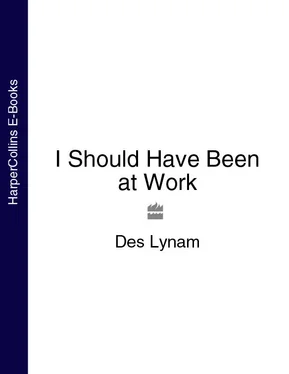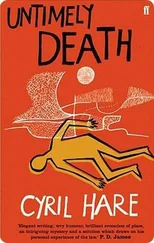I had had a couple of dates with girls at this time. The thrill of simply holding hands in the cinema was almost overwhelming. I had got into a little trouble on one trip to Ireland when I had taken a beautiful local girl from Ennis to the pictures. Her name was Maura Gorman, and I had given her a kiss in the back row. I had been spotted and was marched off to see my Uncle Frank, who took me to one side: ‘We don’t do that sort of thing in public,’ he said. I was mortified, feeling that I’d let the family down. Mind you, Maura had enjoyed it as much as I had.
Then, back in Brighton, I had bumped into Susan, who with her blonde hair and good looks was making the social side of life very bearable indeed. Sue was still at the girls’ grammar school and looked good even in her navy blazer. Her parents were nice people but a bit suspicious of this boy from the council estate. Over the next ten years, they would get to know me pretty well.
After a couple of years in banking, and with Part 1 of the Institute of Bankers’ exams passed in double-quick time, I decided I couldn’t stand the job any longer and left. For a couple of months I worked as a trainee salesman, which involved me moving away from Brighton and staying in digs.
My landlady, some ten years my senior, took a liking to me and was quite keen to introduce me to the comforts of her bedroom. Had her husband, who was a man mountain, returned home from his job (which involved unsocial hours), I would not now be alive to write about it; but I managed to stay pure despite her constant provocation, which did occasionally lead to a bit of slap and tickle, but nothing more.
Both the landlady and the job were very temporary experiences and I soon returned to Brighton to seek further employment and begin doing a little freelance writing. This clearly would not pay many bills and so I took another temporary job driving a fish delivery van. That lasted a few weeks in the summer. It involved getting up at 5 a.m. to pick up the ‘locally caught’ produce (which had come down from Hull or Grimsby) at the railway station, take it to the shop for filleting, and then off to deliver it to the local hotels and other outlets. The head chef of one hotel would take the baskets of fish, returning them empty to me, save for the fillet steak and a mountain of groceries that I would then deliver to his girlfriend’s flat. There would be a steak in it for me as payment. This was plainly dishonest, but at the time I convinced myself that the chef was doing the stealing. I was merely the ‘mule’.
Soon I had to get a proper job again and found myself in the world of insurance, and started to climb the career ladder. It wasn’t very stimulating but it would give me some sort of future if that was the way my life was going to pan out.
Then I got married to Sue and off we went in her mother’s coffee-coloured Triumph Herald convertible to the Isle of Wight on honeymoon. We were young, I was 23, Sue not yet 22, but we had already known each other for five or six years.
Having enjoyed good health since my early brush with illness as a small boy, I was now to experience another nasty shock.
I had suffered a pretty severe headache one day while at the Farnborough Air Show and, like a fool, had taken a couple of aspirin washed down with a pint of lager. I felt decidedly unwell on the journey home and that night woke and was sick. Frighteningly, I was vomiting blood. Sue called the doctor, who inspected the residue of my insides and decided it was hospital for me.
On arriving at the Royal Sussex County Hospital, I was wheeled into the reception area, where I was asked for my date of birth, next of kin, etc. Then, the woman instructed the ambulance men: ‘He’s for death list.’ So that was it. Twenty-three years of age and it was all over. I hadn’t had a life. I had achieved nothing. I gripped Sue’s hand and a tear slid down my face. All I could think of to say to her was ‘sorry’.
And so I was taken to Defflis Ward, named after a former mayor of the town. Thankfully they eventually changed it; apparently I was not the only one who, over the years, thought they were on the way out instead of up to the third floor.
I was diagnosed with a slight scarring of the duodenum, an indication that I had had an ulcer at some time. But I soon recovered and was back on my feet, but banned from ever taking aspirin again.
It was the middle of the Sixties. I was in my early twenties with a wife, a mortgage and a career in insurance. I had passed the examinations of the professional body, which made up some way for my not going to university. I had reached the heady heights of inspector, the company had supplied me with a car – a shining new pale green Ford Anglia – and I spent my days racing around Sussex, calling on insurance brokers, assessing risks of burglary or fire or anything else insurable and, in the main, was having a pretty good time of it. Up till now the Sixties had hardly swung for me, but I was on a fast track to promotion to branch manager, and would probably be one by the time I hit thirty. I would have earned a reasonable salary for the rest of my life
But was I happy? Hell, no. I constantly felt there was more to life. More to me. I felt that I had made some wrong decisions and was now paying for them. It looked as though I would be stuck in this world of business for the next thirty-five years – fine for some, but not for me. My private life was pretty good, and I had an excellent group of friends; but there was a burning dissatisfaction within me.
But my thoughts about the future, and how I might escape from my routine, slipped way down my list of priorities one day in early 1968. My mother, who had scarcely had a day’s illness in her life, suddenly suffered a brain haemorrhage and was rushed to hospital, where she was operated on. The prognosis was not good. If she made any recovery at all, she would almost certainly have been severely disabled. Day after day for a month, my Dad and I, often with my wife Susan, journeyed the thirty or so miles there and back to visit her in hospital. Day after day we would imagine improvements in her condition: ‘I’m sure I saw a flicker of a smile’ – ‘I thought she moved her fingers ever so slightly’. We were trying desperately to give each other some comfort, some hope. After a month my darling mother passed away at the tragically early age of fifty-four. She had been my rock. I loved her very dearly. She was a sensible, funny and charming woman. A looker in her day who rode motorcycles when young and was the life and soul of any party. And dance! How she loved to dance, twirling round the floor on a fine pair of legs. She was the youngest of eight children, but the first to die apart from a brother who had suffered from tuberculosis before the War. Her other brothers and sisters lived on to healthy old age. I and my father were distraught. I had never seen my Dad cry before. We wept together and could find no consolation. I thought my life had come to an end too. I had recently discovered W. H. Auden’s poem ‘Funeral Blues’, made more famous years later in the film Four Weddings and a Funeral. At the time, I certainly felt as though the clocks had all been stopped. Nothing else would worry me ever again. Nothing could be this bad. We hadn’t had a chance to say goodbye. I worried that she was going into the unknown without our support. She would be scared. I wouldn’t, at that stage, have minded paving the way for her.
As the weeks went by, I was even surer that security didn’t matter a tinker’s cuss. I needed to grab life by the throat and wring some meaning out of it. I felt I could write something, but what? I had been unable to get my break into journalism, and as time went by the chances were becoming slimmer. Why would any paper take on someone who worked in insurance? I had offered the odd article to the local papers and to football magazines. Sport was my interest, so I contacted a few sportsmen and asked if I could write a profile on them, without being able to guarantee that the article would ever see the light of day.
Читать дальше












